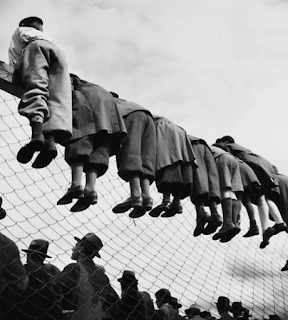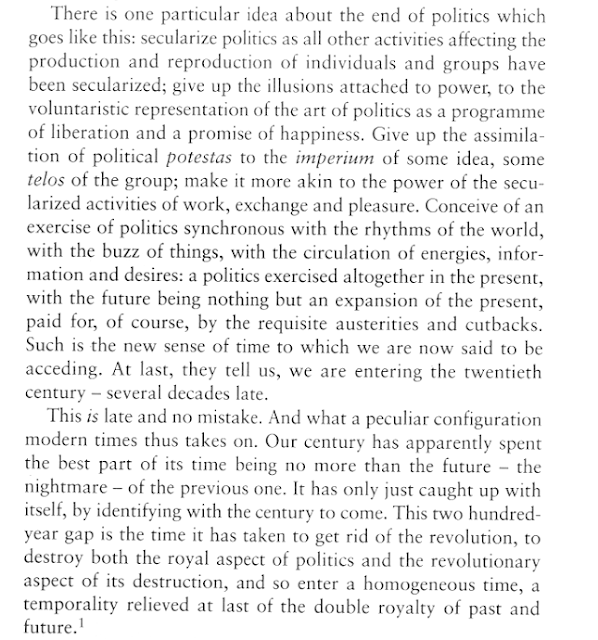The Philosopher Who Would Not Be King
At the entrance to the university there was an inscription dedicating the campus to the memory of Leland Stanford, Jr., “born to mortality . . . passed to immortality,” a mother’s undying love metamorphosed into an institution of timber beam, plaster walls, reinforced concrete, and carved stone. So we convert our tragedies into objects that will withstand corrosive rain, seismic upheavals, and time. We place memorial urns in the cloisters, a chapel at the heart of it all, columns and commemorative plaques that lift our eyes from the ground. Even our intellectual labor aspires to the condition of permanence and transcendence, though our lives are transitory in comparison, our miseries commonplace, our labors unavailing. I felt a strong desire to testify to the struggle of those who lacked the means to pretend that life was otherwise. In about an hour I would present a paper about the life of a Kuranko woman for whom this place might well appear to be paradise, but whose thoughts were always under duress, bound by the obligations of parenthood, the struggle to make a farm, pay her children’s school fees, and provide food for them, as well as overcome the debilitating effects of an undiagnosed illness.
[…]
Not long before his death in June 2007, Richard Rorty wrote a piece called “The Fire of Life”5 in which he meditates on being diagnosed with pancreatic cancer and speaks of the consolations of poetry. He concludes: “I now wish that I had spent somewhat more of my life with verse. This is not because I fear having missed out on truths that are incapable of statement in prose. There are no such truths; there is nothing about death that Swinburne and Landor knew but Epicurus and Heidegger failed to grasp. Rather, it is because I would have lived more fully if I had been able to rattle off more old chestnuts—just as I would have if I had made more close friends.”
Not long before his death in June 2007, Richard Rorty wrote a piece called “The Fire of Life”5 in which he meditates on being diagnosed with pancreatic cancer and speaks of the consolations of poetry. He concludes: “I now wish that I had spent somewhat more of my life with verse. This is not because I fear having missed out on truths that are incapable of statement in prose. There are no such truths; there is nothing about death that Swinburne and Landor knew but Epicurus and Heidegger failed to grasp. Rather, it is because I would have lived more fully if I had been able to rattle off more old chestnuts—just as I would have if I had made more close friends.”
I take Rorty to be saying something more than that poetry and friendship provide pleasure. He is saying that they carry us across the threshold of the self into richer and stranger regions than any we have known alone. Philosophy needs the language of poetry to enter the penumbral—that force field around us, partly lit, partly in shadow, that shapes who we are yet defies our attempts to fully control or comprehend it. Whether we refer to this realm as natural, spiritual, historical, or political is less significant than its essential ambiguity. It enthralls us to the same extent that it eludes us. And though it may unsettle and even destroy us, it may become a source of generative power.
[…]
“I found myself,” Rorty writes, “like most Northerners in the South, not thinking about the beggars in the hot streets once I was back in my pleasantly air-conditioned hotel.” But back in America, recalling his experiences, Rorty’s only conclusion is that all the love and talk in the world—the technological innovations, the new genetics, the power of education, the politics of diversity—"will not help.“
[…]
“I found myself,” Rorty writes, “like most Northerners in the South, not thinking about the beggars in the hot streets once I was back in my pleasantly air-conditioned hotel.” But back in America, recalling his experiences, Rorty’s only conclusion is that all the love and talk in the world—the technological innovations, the new genetics, the power of education, the politics of diversity—"will not help.“
Is this defeatist? A confirmation that, for us, the poor will always remain unthinkable? And where does such a conclusion leave us? Withdrawn into the safe confines of our own small world, immunized from the perils of actually entering the world with which we claim solidarity, consoled by poetry? Or inspired to return to the streets until we find one person whose life is changed, no matter how imperceptibly, by his or her encounter with us, so that the question is no longer whether solidarity can be thought into existence, but how it is actually brought into existence by our everyday choices of what we do?
__ The Philosopher Who Would Not Be King - Michael D. Jackson




Comments
Post a Comment